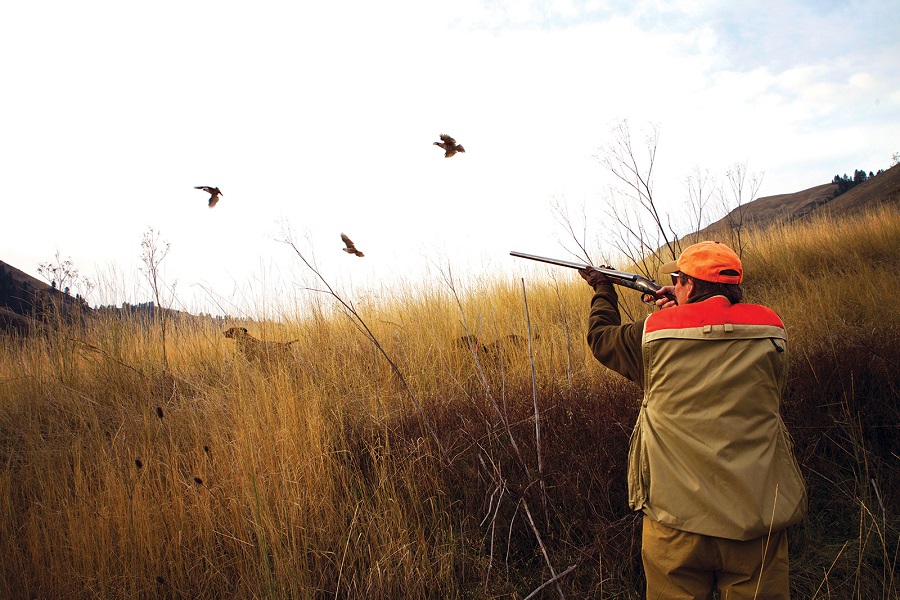You’re heading out to the great unknown, the glorious wilderness, and you’re trying to optimise your gear to be as efficient and effective as possible. There’s a lot of static online about whether you should wear hunting boots on a hike or stick with actual traditional hiking boots. Let’s settle the debate and put speculation to rest.
Hiking boots vs hunting boots,it’s not a simple comparison. Each has their own aspects that make them ideal for their pre-designed task, so let’s define what those are and determine what you’re going to need.
What Are the Main Features of Hiking Boots?
By nature, we all know that hiking is a sport, something that’s athletically engaging and involved. With hunting, that’s not always the case, since we have tree stands we can spend hours in, and we could be staking out animals for just as long. Hiking boots are made to grip the earth and add traction to every step. There’s that, among other features:
Cushioned Cuffs
Unlike hunting boots, hiking boots never go above the ankle. They’re fitted to add support to keep your ankles perfectly aligned, which can be the difference between a broken bone and a minor bit of soreness if you were to take a misstep.
It’s bound to happen while hiking, so this enhanced stability is a lifesaver (sometimes literally).
Non-Slip Traction
There are a lot of different pressure points in your feet, and they’re activated when you take a step while doing just about anything. That being said, you have to step a certain way to get the pressure traction on your boots to work, but they’ll save you from slipping more than a few times while you’re on a dusty trail.
Most hiking boots will have about four or five different pressure-activated points.
Protection
You don’t know what’s lurking out there, but you do know what’s going to protect you: your hiking boots. This is a trait they share with hunting boots, despite often being made out of different materials.
Leather is still tough as nails to puncture, especially if we’re talking about nature being the problem.
Mobility
Hiking boots have more mobility than hunting boots, period. Yes, we mentioned that the ankle cuffs are there to stabilise you and keep you straight, but they’re also still granting minor mobility to your ankles.
With a pair of hunting boots, you’re sacrificing mobility for protection and waterproofing.
Breathability
Compared to hunting boots, hiking boots are as breathable as they can be. They feature mesh and leather, which work in tandem to provide you with aerated pockets that force light gusts between your toes and around your feet.
This prolongs the inevitable, which is stinky feet, but it also cuts down on your risk of growing a fungal infection while you’re busy hunting.
How Are Hiking Boots Different From Hunting Boots?

For one, hunting boots are designed to be waterproof in almost every situation. They’re supposed to account for everything from rainfall to thick mud and keep you completely dry during your entire trek. Hiking boots won’t do that because they’re designed to be a little more breathable and a little less protective.
Hunting boots do have some traction on the bottom, by the way; we’re not saying that they don’t. They just don’t offer quite as much as hiking boots. If you’re trying to traverse sizable mountains to find the right hunting spot, you might have a bit of difficulty climbing because of the rigid shin-level cuffs, but you will still have good traction. Hiking boots are only superior for traction when you’re talking about steep inclines and dusty, rocky outcrops.
When it comes to waterproofing, we don’t care how “waterproof” hiking boots can be; hunting boots are superior. They’re made out of different materials that boast natural waterproofing properties. Rubber and polyurethane/PVC boots will just keep water from penetrating them, no matter what. You’ll see arguments saying that leather is the exact same, but there’s a big misconception there.
Leather and rubber are both made out of polymers, and that’s a fact. However, the distinction between these is that leather is a naturally occurring polymer, whereas rubber is a synthetic polymer. If you see hunting boots that are made of nylon, polyethylene, polyester, teflon, or epoxy, those are all examples of synthetic polymers. Their molecular structure doesn’t allow water to penetrate, but leather and other naturally occurring polymers are subject to natural decomposition and degradation. They can still last for a very long time, but that’s why you’ll need to reseal and reproof a pair of leather boots. PVC boots are basically just laced up and go.
When it comes to breathability, you have to really watch out for hunting boots. We love them, but they’re not going to allow much air inside. They have higher cuffs that end somewhere around your shins, meaning everything beneath them is in a dark and moist environment. That’s not only uncomfortable, but it can also cause bacteria that lead to athlete’s foot and fungal infections. For this, you should kick off your hunting boots when available, such as during rests or time in your tree stand, and let each foot air dry for about five minutes or so.
Can You Use Hunting Boots For A Hike?

You can, but you would be unwise to do so. Hunting boots are rigid in areas that you don’t benefit from during a hike. You need cushioning to account for the stress your joints will be going through, primarily around your ankles. On top of that, the soft cushioning on the interior of a pair of hiking boots won’t leave your skin chafed and irritated like PVC or rubber will. Yes, you will be wearing socks underneath, but once those get moist from sweat, they’re going to cause irritation.
There’s also the issue of weight. Hunting boots cover more, and they’re made of a single material. While there might not be any laces or intricate side designs present, there’s a heavier overall weight. Any hiker will tell you that after five miles, every single pound on your shoulders or in your clothing will start to make a difference. You can feel it.
Can You Use Hiking Boots On A Hunt?

Do you believe in rain? Hiking boots can be treated with a waterproofing spray; they can have some natural water resistance, but they’re not designed for hunting. You can never be 100% certain about the weather in the woods (or any weather for that matter), so if rain comes, you’ll be trodding around in squishy, soggy boots all day. Welcome to the home of bacteria and protozoa. Rainfall brings up all the nastiness in the soil of the forest floor, such as bacteria from animal excrement, decaying or composting fallen leaves, and plant life that you normally don’t come into contact with on a regular basis.
Hunting boots are designed to keep all that out, even if you’re halfway up your shins in a puddle or treading over a light steam. They’re heavier, for sure, but that’s the price you pay for protection. Nobody ever wore body armour that was lighter than a tank top, and nobody is going to have hunting boots that are more lightweight than hiking boots. It just doesn’t happen.
One last thing about hiking boots: they don’t retain their tightness throughout a hike. You have to adjust them once every hour or two just to keep that tight fit, but you can’t physically do that on a pair of hunting boots that are made out of a solid polymer. Over time, you might slightly stretch out rubber or PVC boots, but not enough that it’s going to majorly affect how they fit on you.
Should I Bother With Hiking Shoes At All?
Not for hunting. Heck, most of the time, they’re not even good for hiking. Hiking shoes are only viable for day hikers. People who live in California and have hiking trails ten minutes from their door, or Colorado citizens who have a million options for places to walk. Hiking shoes offer good stability and traction but are designed for about two to four hours of lightweight use, more as a physical activity than a shoe to get you from A to B.
Hiking shoes have a lower ankle threshold than hiking boots, so there’s a little less support there. The cuffs are usually cushioned, so you won’t have to worry about comfort. The only two things that hiking shoes really have over hiking boots are being less expensive and being a bit more breathable.
Hiking Boots VS Hunting Boots: You Decide
At the end of the day, it’s up to you. Do you want something sturdy and built to help you mount the terrain, or do you need something waterproof and a little more rigid? Go with something that fits your athletic lifestyle and that you can see yourself wearing on the way to and from the hunting site.
Resources:



